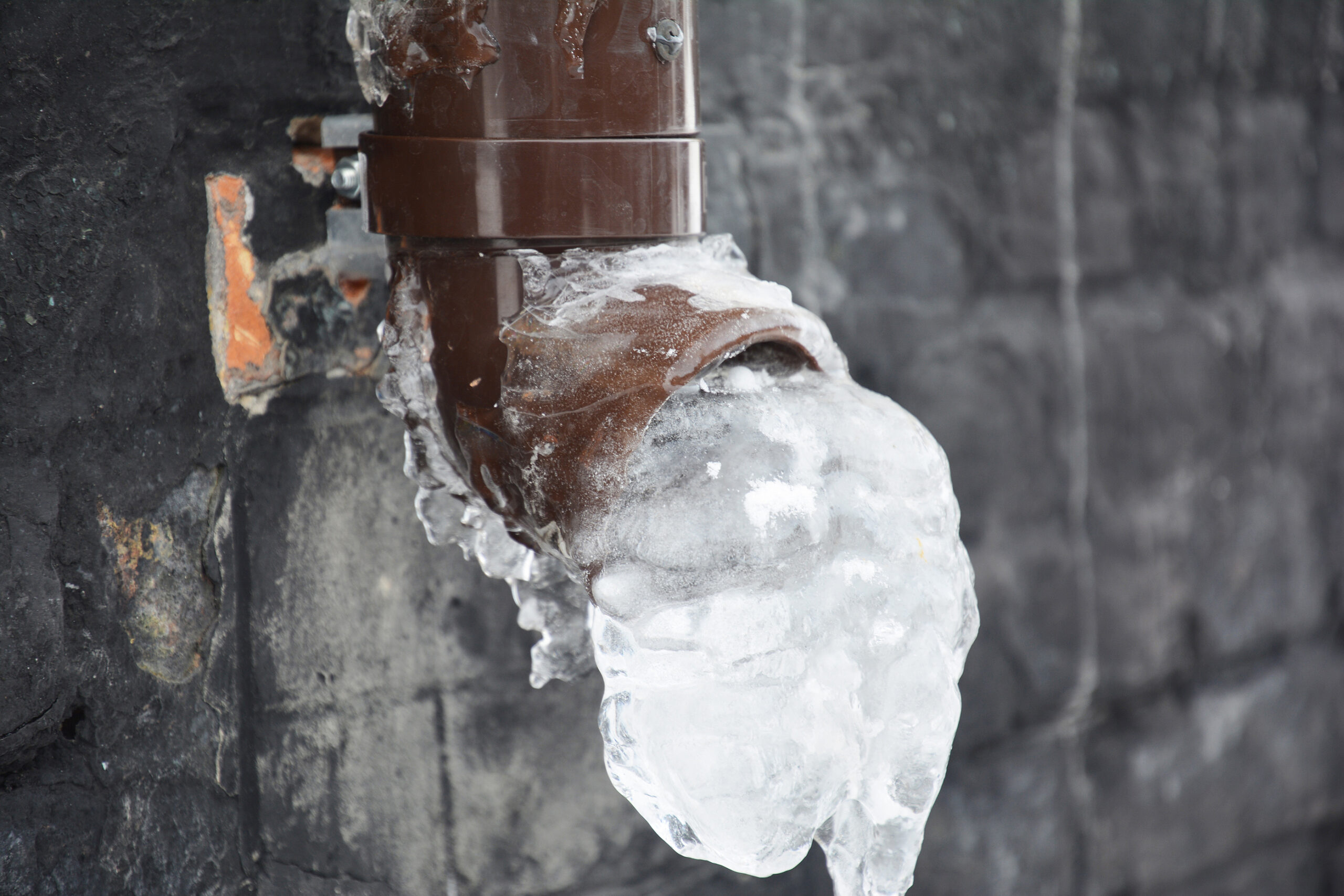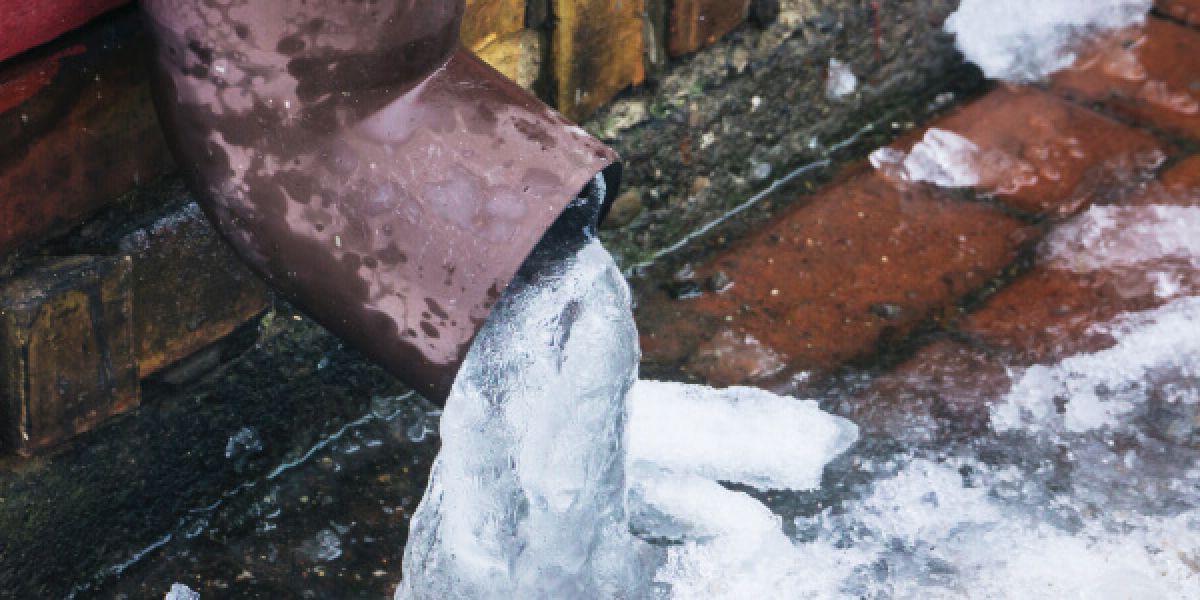We've stumbled upon this great article involving Helpful Tips to Prevent Frozen Pipes this Winter below on the web and concluded it made good sense to share it with you over here.

Winter can ruin your pipes, specifically by freezing pipes. Below's how to avoid it from happening and what to do if it does.
Introduction
As temperatures decline, the threat of frozen pipes boosts, potentially leading to costly repairs and water damages. Comprehending how to prevent icy pipes is essential for property owners in chilly environments.
Prevention Tips
Insulating susceptible pipes
Cover pipelines in insulation sleeves or make use of warm tape to shield them from freezing temperatures. Concentrate on pipelines in unheated or exterior areas of the home.
Home heating strategies
Keep indoor areas sufficiently heated, especially areas with pipes. Open up cabinet doors to enable warm air to circulate around pipes under sinks.
Exactly how to recognize icy pipelines
Seek reduced water flow from taps, uncommon smells or sounds from pipelines, and noticeable frost on revealed pipes.
Long-Term Solutions
Architectural changes
Take into consideration rerouting pipelines far from outside wall surfaces or unheated areas. Include extra insulation to attics, cellars, and crawl spaces.
Upgrading insulation
Purchase top notch insulation for pipelines, attics, and walls. Proper insulation helps maintain regular temperatures and minimizes the risk of icy pipelines.
Shielding Outside Pipes
Yard hoses and outdoor faucets
Separate and drain pipes garden tubes before winter. Mount frost-proof spigots or cover exterior faucets with protected caps.
Recognizing Frozen Pipes
What triggers pipes to ice up?
Pipes freeze when exposed to temperatures below 32 ° F (0 ° C) for expanded periods. As water inside the pipes ices up, it increases, taxing the pipe walls and possibly creating them to burst.
Threats and problems
Icy pipes can bring about water system disturbances, building damage, and costly repairs. Ruptured pipelines can flooding homes and create comprehensive architectural damages.
Signs of Frozen Piping
Determining icy pipes early can avoid them from rupturing.
What to Do If Your Pipelines Freeze
Immediate actions to take
If you think frozen pipelines, keep taps open to ease stress as the ice thaws. Utilize a hairdryer or towels taken in hot water to thaw pipelines slowly.
Final thought
Protecting against icy pipes requires aggressive procedures and fast responses. By comprehending the reasons, indicators, and preventive measures, house owners can shield their pipes throughout cold weather.
5 Ways to Prevent Frozen Pipes
Drain Outdoor Faucets and Disconnect Hoses
First, close the shut-off valve that controls the flow of water in the pipe to your outdoor faucet. Then, head outside to disconnect and drain your hose and open the outdoor faucet to allow the water to completely drain out of the line. Turn off the faucet when done. Finally, head back to the shut-off valve and drain the remaining water inside the pipe into a bucket or container. Additionally, if you have a home irrigation system, you should consider hiring an expert to clear the system of water each year.
Insulate Pipes
One of the best and most cost-effective methods for preventing frozen water pipes is to wrap your pipes with insulation. This is especially important for areas in your home that aren’t exposed to heat, such as an attic. We suggest using foam sleeves, which can typically be found at your local hardware store.
Keep Heat Running at 65
Your pipes are located inside your walls, and the temperature there is much colder than the rest of the house. To prevent your pipes from freezing, The Insurance Information Institute suggests that you keep your home heated to at least 65 degrees, even when traveling. You may want to invest in smart devices that can keep an eye on the temperature in your home while you’re away.
Leave Water Dripping
Moving water — even a small trickle — can prevent ice from forming inside your pipes. When freezing temps are imminent, start a drip of water from all faucets that serve exposed pipes. Leaving a few faucets running will also help relieve pressure inside the pipes and help prevent a rupture if the water inside freezes.
Open Cupboard Doors
Warm your kitchen and bathroom pipes by opening cupboards and vanities. You should also leave your interior doors ajar to help warm air circulate evenly throughout your home.

I discovered that piece about Prevent Frozen Pipes while doing a lookup on the search engines. Loved our piece? Please quickly share it. Let somebody else discover it. I thank you for your readership.
Schedule Appointment
Comments on “Ways to Safeguard Plumbing System from Cold Weather: Critical Strategies”